In southern regions of the United States, Bermuda grass is one of the most popular grasses on home lawns, sports fields, and golf courses. It is inexpensive, looks good, and can tolerate heavy foot traffic very well. So, what’s the problem, you might ask! Bermuda grass is tough, adaptable, and has a creeping growth habit. Unfortunately, this allows it to spread in even the most unlikely lawn and garden places. And, did we tell you that Bermuda grass growth is a REAL pain to get rid of? Read on and find out how to kill Bermuda grass naturally weed.
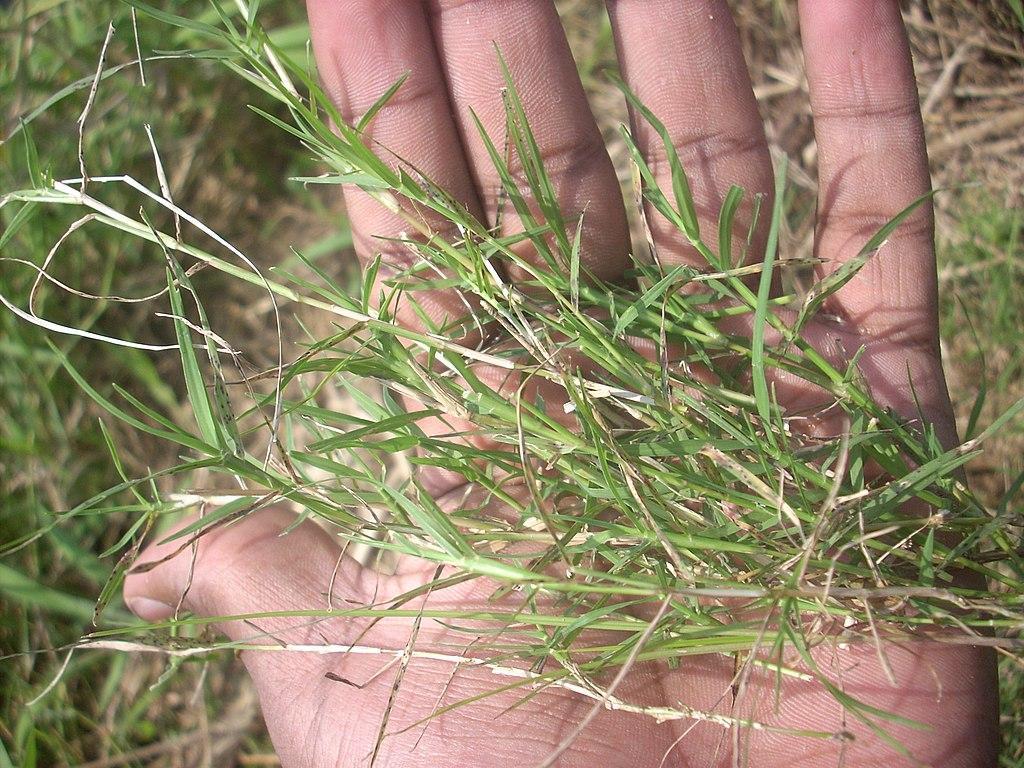
In southern regions of the United States, Bermuda grass is one of the most popular grasses on home lawns, sports fields, and golf courses. It is inexpensive, looks good, and can tolerate heavy foot traffic very well. So, what’s the problem, you might ask!
Bermuda grass is tough, adaptable, and has a creeping growth habit. Unfortunately, this allows it to spread in even the most unlikely lawn and garden places. And, did we tell you that Bermuda grass is a REAL pain to get rid of?
However, do not worry! We are here to help. So, let’s get started!
Bermuda Grass At A Glance
| Scientific name | Cynodon dactylon |
| Other names | Devil’s Grass, Scutch grass, Wire grass, Couch grass, Dog’s tooth grass, Crab grass |
| Grass-type | Perennial Warm-season |
| Growing season | Late spring through hot summer months |
| Growth Habit | Highly variable, creeping, sod-forming, and spreading |
| Habitat | Lawns, pastures, grasslands, uncultivated lands, irrigated lands, and along roadsides |
| Uses | Turf grass, forage crop, medical and religious |
Related: Top 10 Weed Killers For Bermuda Grass | A Comprehensive Guide
Bermuda Grass Pros & Cons
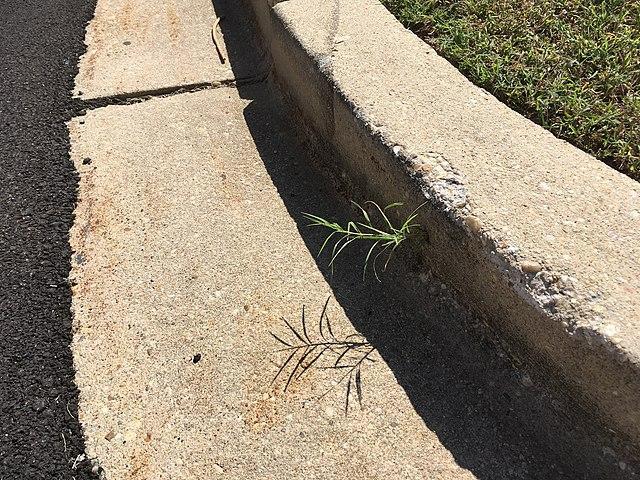
If you are here, you are probably trying to decide whether not planting Bermuda grass is a good idea. While many describe Bermuda grass as a grass lover’s dream, many disdain it for its aggressive growth and invasive nature.
So, let us provide you with a list of its pros and cons. Hopefully, after reading this list, you will be able to decide if you want to grow Bermuda grass or not.
RELATED: How To Properly Aerate Bermuda Grass Lawn | Best Time To Aerate Your Bermuda Lawn
Benefits & Drawbacks of Bermuda Grass
| Benefits | Drawbacks |
|---|---|
| It is cheap and, as stated early, easy to maintain. So, you’ll save quite a lot on lawn costs. | Though cheap to maintain, you will have to mow it quite a lot because of its speedy growth. |
| Bermuda grass is a warm-season grass, but its heat tolerance is still exceptional. | Bermuda grass has poor cold tolerance and loses its color in the winters. |
| Due to its aggressive growth habit, it can outcompete weeds on its own really well. | Due to its aggressive growth, it quickly takes over adjacent vegetable and flower beds. |
| Bermuda grass does not have many pest problems; even if a pest attacks, it sustains it very well. | Few pests attack Bermuda grass, but it is incredibly prone to damage from nematodes. |
| Due to a deep and robust root system, Bermuda grass is quite drought-tolerant. | It does not need a lot of water but needs full sun to grow properly. |
| Bermuda grass is resilient! It doesn’t tear up easily and recovers from damage rather quickly. | Despite its resilience, Bermuda grass is quite susceptible to fungal lawn diseases. |
| Bermuda grass is not too picky about where it grows, and It grows well in nearly all soil types. | Unlike many other types of grass, Bermuda is pretty much worthless to pollinator insects. |
| It is easy to grow and maintain. Also, it does not need as much water & fertilizer as other grass types. | Though easy to maintain, Bermuda grass is prone to damage from dog urine and nitrogen burns. |
After reading the above-given comparison, we hope you can wisely decide whether to treat Bermuda as a lawn owner’s dream or a weed. And, if you have decided it is a weed, let’s talk about how you can control and eliminate Bermuda grass.
How To Identify Bermuda Grass?
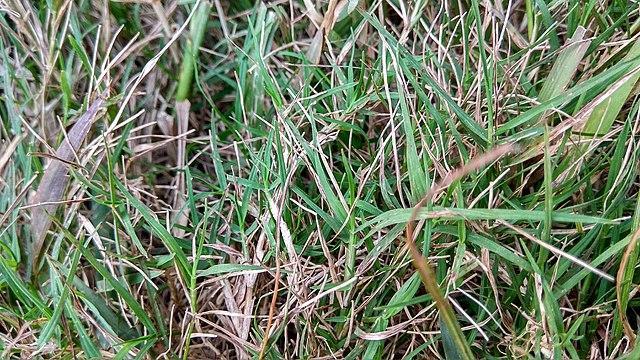
If you are reading this article, you probably already know what Bermuda grass growth looks like because you are sick of seeing it sprout everywhere. However, for those of you who have no idea what is Bermuda grass and what does it look like, here is a quick identification guide:
Bermuda Grass Identification Guide
Bermuda grass is easily identifiable because of several features. It has a tangled and creeping Bermuda grass growth habit, and many describe it as vine grass.
Bermuda Grass Leaves
Bermuda grass has short and flat leaves. The leaves are blue-green and two to twenty centimeters long. Leaf blades are essentially smooth but can be a bit hairy on the top.
Bermuda Grass Stems
Bermuda grass has a stoloniferous stem. It means that it can give rise to new roots and shoots along the way at specific sites called nodes.
Bermuda Grass Seed Heads
Bermuda grass seed heads are in the form of spikes. A single seed head contains about seven terminal spikes. Seed heads are produced in great numbers under stress.
Bermuda Grass Roots
Bermuda grass has a robust, perennial root system with vigorous and deep fibrous rhizomes. New roots are white, while mature roots are yellow and brown.
RELATED: Is Bermuda Grass A Weed? and How To Kill Bermuda Grass Naturally!
How To Eliminate Bermuda Grass Naturally?
While you might be quick to point out that you can use herbicides to remove Bermuda grass growth from your lawn if it becomes weed, let us remind you that since it is grass, not commercially available herbicides won’t work. Also, why would you want to use harmful chemicals on your lawn when there are better, natural, and eco-friendly ways of doing it.
So, let’s explore some methods to eliminate and kill Bermuda grass naturally.
Dig Up The Bermuda Grass
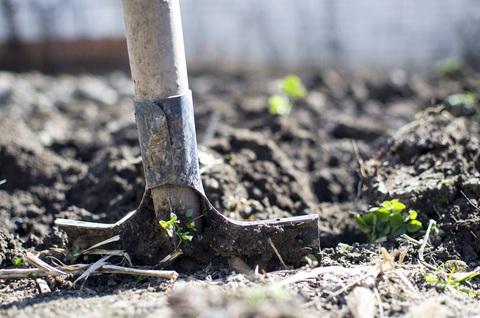
If the Bermuda grass is present only in a tiny area, you can dig it up. However, keep in mind that it won’t be easy. It is because Bermuda grass has deep rhizomes in addition to a robust root system. And, if the rhizomes are not completely removed, Bermuda grass will come back even if you manage to remove all the shoots and roots.
Here is how to correctly dig up and remove Bermuda grass from your lawn:
- At least dig six inches deep to make sure that you are removing the entire plant.
- Keep an eye out for anything shaped like a potato or ginger. It is a rhizome, and you should never leave it behind.
Kill Bermuda Grass With Vinegar & Salt

Another way of killing Bermuda grass is using salt and vinegar. Now, this method is more-ecofriendly than using herbicides but is not as eco-friendly as some other methods mentioned below. SO, make sure you read those as well.
To kill Bermuda grass using vinegar, you will first have to find a 10% vinegar solution. Home vinegar is only around 3 to 4 percent acetic acid which is not very effective. Once you have a stronger vinegar solution, here is how you can use it:
- Take one cup of salt and one gallon of vinegar. Mix these items and put the mixture in a spray bottle. Make sure that you have some gloves and eye goggles on.
- Use the spray bottle to soak the infected area lightly. Take caution not to spray the mixture everywhere around the Bermuda grass. Vinegar is not a selective weed killer and will kill off any vegetation it touches.
- Do not dispose of the leftover vinegar and salt solution by pouring it onto the ground. The mixture is so potent that if it soaks the ground, nothing will grow there for a long, LONG time.
Just like digging, spraying Bermuda grass with vinegar and salt solution can be pretty tiring and tedious. So, let’s explore some other options!
Kill Bermuda Grass By Solarization
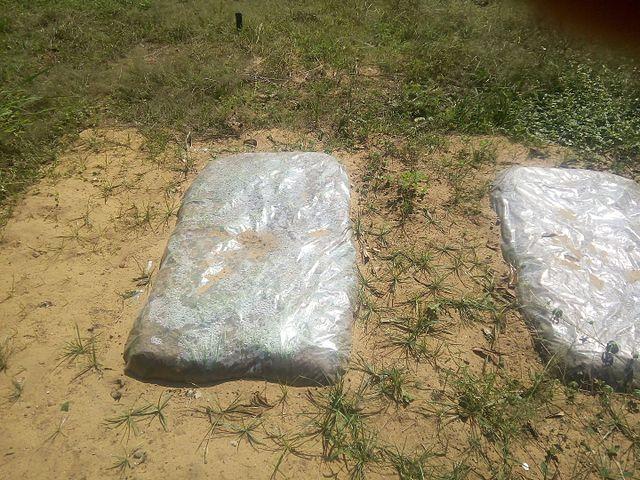
For those unfamiliar with solarization, it is a process in which you place a piece of clear plastic over a lawn, garden, or field bed to heat the soil underneath. It is a widely practiced method to kill weeds and grass and control pest populations.
Also, it is a simple and straightforward procedure that does not require much technical know-how. It is excellent for killing Bermuda grass in a large area. Here is how to do it:
- Choose the hottest time of the year and day to perform solarization.
- Keep in mind that solarization takes around three to four weeks to complete.
- Once you have selected a time, cut the grass as much as you can.
- Till the area containing Bermuda grass to a depth of one foot.
- Slowly water the area with at around one to two inch.
- Next, cover the watered area and a two-foot margin around it with a clear piece of plastic sheet.
- Tightly anchor the plastic in its place, so it doesn’t blow away with the wind.
- Leave the lawn covered with plastic for at least four to five weeks.
Kill Bermuda Grass By Smothering
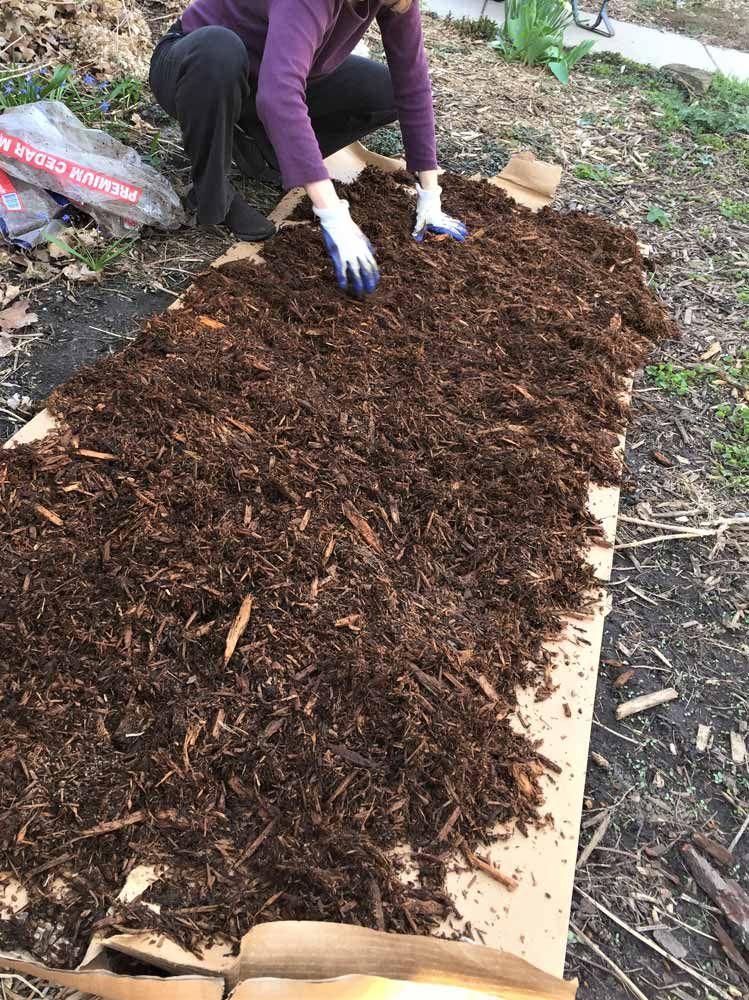
Smothering Bermuda grass is exactly what it sounds like. You take some cardboards, pieces of newspaper or plastic and cover the grass with them. This suffocates the grass, depriving it of its ability to exchange gasses with the environment, ultimately resulting in its death. However, keep in mind that it can take several months, so plan accordingly.
Here is how to do it correctly:
- Scalp the upper layer of your lawn with a sod cutter.
- Cover the area with four to five layers of newspaper, plastic, or cardboard.
- Then cover the used material with four to five inches of mulching material.
- Leave everything in its place and wait patiently for a few months.
RELATED: Planting, Mowing And Watering Bermuda Grass Lawn | How To Do It Right?
Final Thoughts | Think Control, Not Removal
Owners of many turf types deal with Bermuda grass. Unfortunately, using manual, natural, or organic removal methods is impossible to kill Bermuda grass without harming or killing other grass on your lawn.
So, we highly recommend that you treat your lawn with a pre-emergent herbicide or a Bermuda grass-specific weed killer. That way, you won’t have to deal with this obnoxious and invasive grass, saving yourself a lot of headache and hassle.
Frequently Asked Questions (FAQs)
Is Bermuda a creeping grass?
Bermuda grass is creeping grass that spreads via above-ground runners (stolons) and underground rhizomes. Some also call it the vine grass because of its creeping and tangled growth habit, which can quickly take over entire lawns.
Is Bermuda grass and crabgrass the same?
Both Bermuda grass and crabgrass are aggressive spreaders. However, they are not the same plant. In addition, Bermuda grass is a popular turf in many southern areas of the US. However, crabgrass is a weed that no one wants.
Is Bermuda grass a good grass to have?
Bermuda grass is known for its exceptional heat and drought tolerance. So, depending on where you live, it might be a perfect choice. It is also good at tolerating high foot traffic but can spread aggressively, which might cause problems in tightly spaced lawns.
Is Bermuda grass a medicinal plant?
Bermuda grass, also known as Cynodon dactylon by the scientific community, is a prized Ayurvedic plant. It has a variety of medicinal properties, including antimicrobial and antiviral characteristics. It has been used extensively to treat hemorrhage, headache, hypertension, etc.
What kind of bugs eat Bermuda grass?
Bermuda grass is very susceptible to attack by mites. Other insects that love munching on its roots include sod webworms, grub worms, fire ants, mole crickets, etc.
Sources for Further Reading
Bermudagrass, is it here to stay? – Utah State University Extension & Service
Bermudagrass Management Guidelines – Agriculture and Natural Resources, University of California
Selective Bermudagrass Control for Lawns – Virginia Polytechnic Institute and State University
Editor’s Recommendations
Watering Grass Seeds: Important Details and Information You Should Know
Should You Spray Weeds Before Or After Rain? The Best Time To Spray Weeds
How To Get Rid Of Fungus In Mulch For Good | The Ultimate Guide







